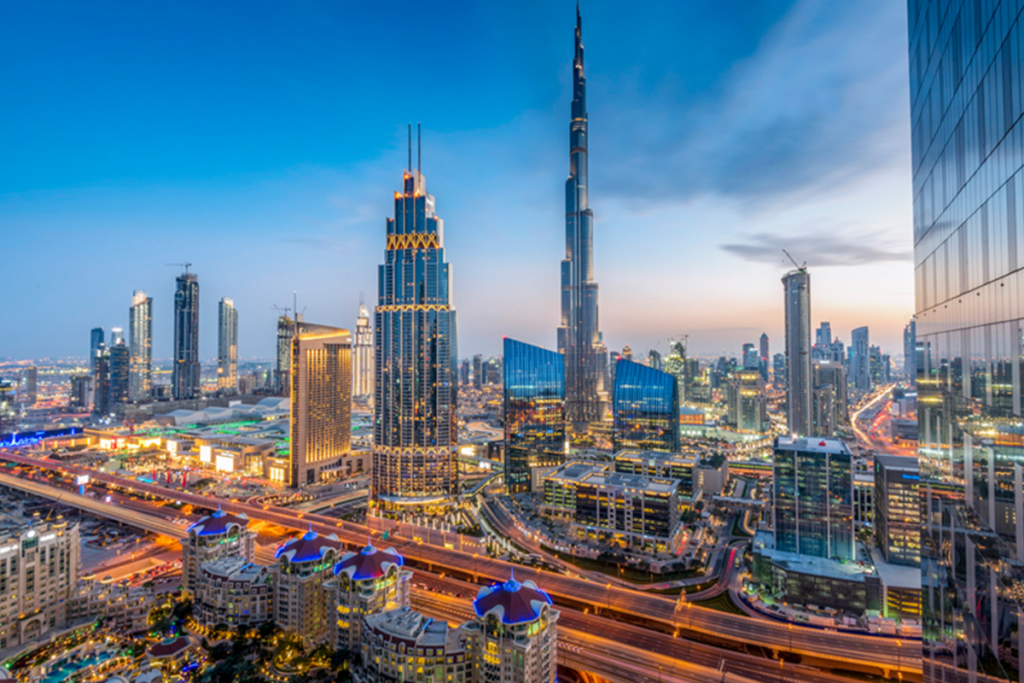The United Arab Emirates ranks fourth out of 169 countries in the DHL Global Connectedness Index.
UAE has climbed the ranks to become the Middle East’s most globalised country, owing to its position as a trade hub, flows of foreign investment, the high number of tourists and its large expatriate population, a report by DHL and NYU Stern School of Business reveals.
The Arab world’s second largest economy rose two notches in 2021 to rank fourth globally out of 169 countries, after the Netherlands, Singapore and Belgium, in the 10th DHL Global Connectedness Index compiled by DHL and the NYU.
The UAE is among five countries, including Mexico, the Netherlands, Sierra Leone and Vietnam, that have stood out for their strong or rising global connectedness over the past two decades, according to the index.
“Looking at the Middle East, the UAE’s pre-eminent position as the most globalised nation in the region is an outcome of economic development strategies that aggressively pursued growth via globalisation, strongly supported by the private sector and public,” Amadou Diallo, chief executive of DHL Global Forwarding for the Middle East and Africa, said on Wednesday.
The UAE’s economy continues to recover from the pandemic-driven slowdown, aided by Dh388 billion ($105.65bn) worth of economic support measures. Government initiatives, including visas for expatriate retirees and the expansion of the 10-year golden visa scheme to encourage foreign professionals to settle in the country, have also helped to improve investment sentiment.
The country reaped the dividends of investment over the past two decades in its infrastructure and embracing of technology that helped it adapt and weather the Covid-19 pandemic.
Meanwhile, Expo 2020 has been attracting a large number of visitors since the world’s fair opened on October 1. More than 6.3 million visitors had visited the Expo site by December 13, according to official data.
The DHL Global Connectedness Index measures globalisation based on four main pillars: the flows of international trade, capital, information and people. It tracks both the size of countries’ international flows relative to their domestic activity and their geographic reach around the world.
The UAE climbed the ranks driven by its high scores on the main pillars. The Middle East’s finance and business hub scored 83 out of 100 on trade and 73 out of 100 on both information flows and people flows.
The UAE became the Middle East’s most globalised country, ahead of Qatar in 31st place, Bahrain in 39th, Saudi Arabia in 42nd, Lebanon in 54th, Kuwait in 56th and Jordan in 61st position.
The shock of the Covid-19 pandemic has caused a “modest” decline in global connectedness in 2020, followed by clear signs of recovery in 2021, according to the report findings.
“Covid-19 has not caused globalisation to collapse,” the authors of the report said. “Trade in goods has surged to well above pre-pandemic levels, powerfully supporting the global recovery even as capacity challenges and trade tensions persist.”
The global health crisis dealt “a major blow” to international capital flows, but portfolio equity flows stabilised in mid-2020 and foreign direct investment rebounded sharply in 2021, the report said.
The pandemic, which paralysed the global aviation industry, hit the international movement of people the hardest, and they are on track to recover the slowest, the report showed. International travel remained more than 80 per cent down in the first half of 2021.
The world’s poorest countries are falling behind in the globalisation recovery, the DHL and NYU study showed, with their trade and FDI flows still below pre-pandemic levels in the first half of 2021.
“Stronger global connectedness could accelerate the world’s recovery from Covid-19,” the report authors said. “Vulnerabilities highlighted by the pandemic should be addressed for a more prosperous and resilient future.”
(Except for the headline, this story has not been edited by The Finance World staff and is published from a syndicated feed.)

